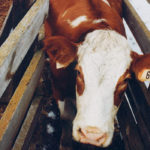Time and labour are often in short supply at cow-calf operations, but there are ways producers can save both, while also saving a bit of money. Drones should be used on most larger operations for checking cattle, checking fences, checking watering troughs, finding lost cattle and identifying sick ones. Drones are quick and the images […] Read more
Stories by Roy Lewis, DVM
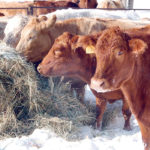
Lice increase in prevalence across Western Canada
For the second winter in a row pharmaceutical companies are hearing lots of complaints about scratching cattle and hair loss. This means that producers and veterinarians may need to change how they routinely treat for lice. First, a positive diagnosis is important. We may handle biting lice, sucking lice and chorioptic mange differently and many […] Read more
Producers must be on top of cattle treatment advances
One has only to think back a few years and realize the major changes that have happened in the production of beef in our country. Some are pharmaceutical in nature, while others are advances in equipment or services. Still others are reduced stress in cattle handling. It is promising to see advances that will improve […] Read more
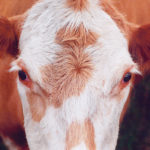
Lack of contractions in calving cows has various causes
There have been several instances during my career when an unexplained delay in calving has resulted in stillborn or weak calves because the calving process was too long. I would guess that most producers have run into this problem at one time or another. Although not much research has been done on the subject and […] Read more
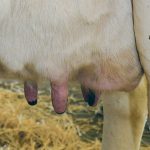
Knowing when to treat is crucial when udder edema cases appear
UPDATED: September 26, 2025 – Producers sometimes have trouble recognizing udder edema. It is fluid accumulation within the udder and teats and ahead of the udder as bred cattle (primarily heifers) get close to giving birth. The fluid entrapment can lead to an uncomfortable condition and has the potential to cause mastitis. It could also impair long-term […] Read more
These tips can help improve vaccination programs
Cattle producers pay good money for vaccines and spend a lot of effort developing a sound vaccination program for their farms. As a result, they don’t want it failing because of poor storage or administration technique. Using a cooler to protect product from freezing or thawing is one really good idea. I used the Cross […] Read more
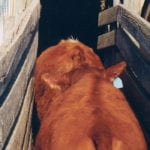
Finding ways to improve cattle’s footing pays dividends
Many feedlot audits in Canada and the United States look at slips, trips or falls of cattle, especially when loading or processing, and record the percentage for good reason. There are specific areas where footing can be improved or altered. As well, new methods can be used to improve animal welfare and decrease injuries. Producers […] Read more
What to consider when choosing animal health products
In today’s society, the consumer has lots of choices when making purchases. From the brand of cereal to the type of beer, different choices are around every corner. The same thing is becoming true in the animal health and pharmaceutical industry. At the end of the day, the most important decision is whether to use […] Read more
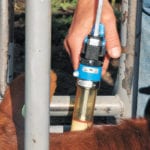
Lapses in vaccination programs can have consequences
Veterinarians and producers must be constantly reviewing vaccination protocols to check for lapses in booster shot administration, missed antigens in vaccines and new or emerging diseases for which vaccines are available. Cattle that are transported into areas where other diseases are more prevalent have often been the cause of outbreaks to such things as redwater […] Read more
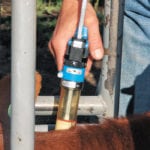
Processing and vaccinating hints for cattle producers
Developing safe vaccination protocols for your herd can pay off. Here are some basic tips: Store vaccines in the middle area of the fridge. Follow the label instructions and maintain the chain of refrigeration. Check fridge to ensure it stays at the desirable temperature. Keep a thermometer in the fridge. Don’t store vaccines in the […] Read more

